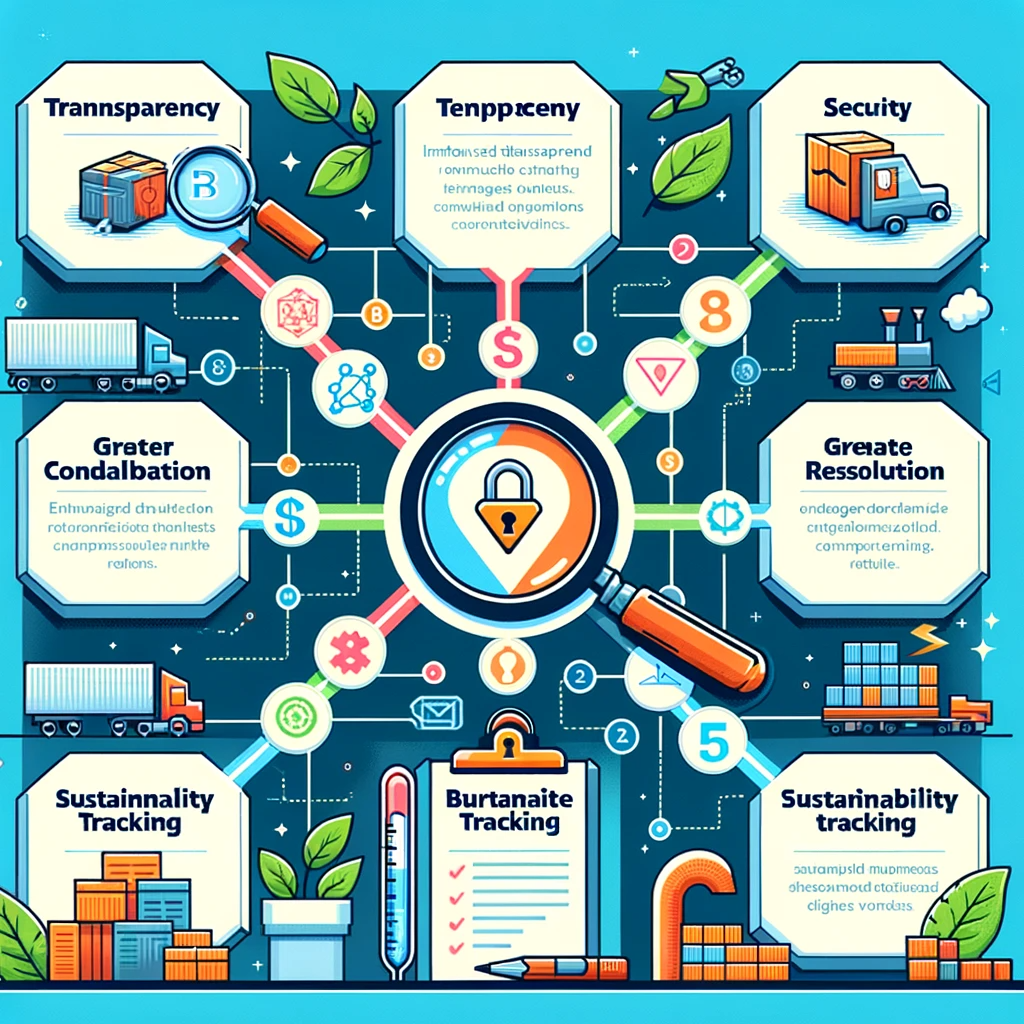Blockchain in Logistics: Driving Innovation and Efficiency in Supply Chain Management
Blockchain technology is increasingly being recognized for its potential in transforming the logistics industry. Here is a Figure 1 that visually represents the various advantages of using blockchain technology in the logistics industry, as outlined in the blog. Each section of the diagram corresponds to a specific benefit, providing a clear and organized overview of how blockchain can enhance logistics operations.

Here’s a short blog on the advantages of using blockchain in logistics:
- Enhanced Transparency: Blockchain’s most significant advantage in logistics is its ability to provide unparalleled transparency. Every transaction or movement of goods can be recorded on a blockchain, providing real-time tracking and a permanent history of transactions. This level of transparency can significantly reduce the incidence of lost or counterfeit goods.
- Improved Efficiency and Reduced Costs: Blockchain can automate many of the traditional processes in logistics, such as goods receipt, customs clearance, and payment processing. By streamlining these processes, companies can reduce operational costs and increase efficiency.
- Greater Security: The decentralized and encrypted nature of blockchain makes it highly secure against tampering and cyber threats. This is particularly important in logistics, where sensitive information and valuable goods are frequently in transit.
- Better Coordination and Collaboration: Blockchain can facilitate better coordination among the various stakeholders in the logistics chain, including manufacturers, shipping companies, and retailers. This improved collaboration can lead to more efficient supply chain management.
- Enhanced Compliance and Quality Control: Blockchain enables better tracking of compliance with regulatory requirements. For instance, in the food logistics sector, it can be used to verify that products have been stored and transported under the right conditions, ensuring quality control.
- Dispute Resolution: The clear, immutable record provided by blockchain can help resolve disputes more efficiently. With an accurate, tamper-proof record of transactions, it becomes easier to determine the cause of issues and address them.
- Sustainability Tracking: Blockchain can be used to track and verify sustainable practices in the supply chain. This is increasingly important as consumers and regulators demand more environmentally friendly and ethical products.
In conclusion, blockchain offers a range of advantages for the logistics industry, from enhancing transparency and security to improving efficiency and sustainability. As this technology continues to evolve, it’s likely to play an increasingly vital role in logistics and supply chain management.